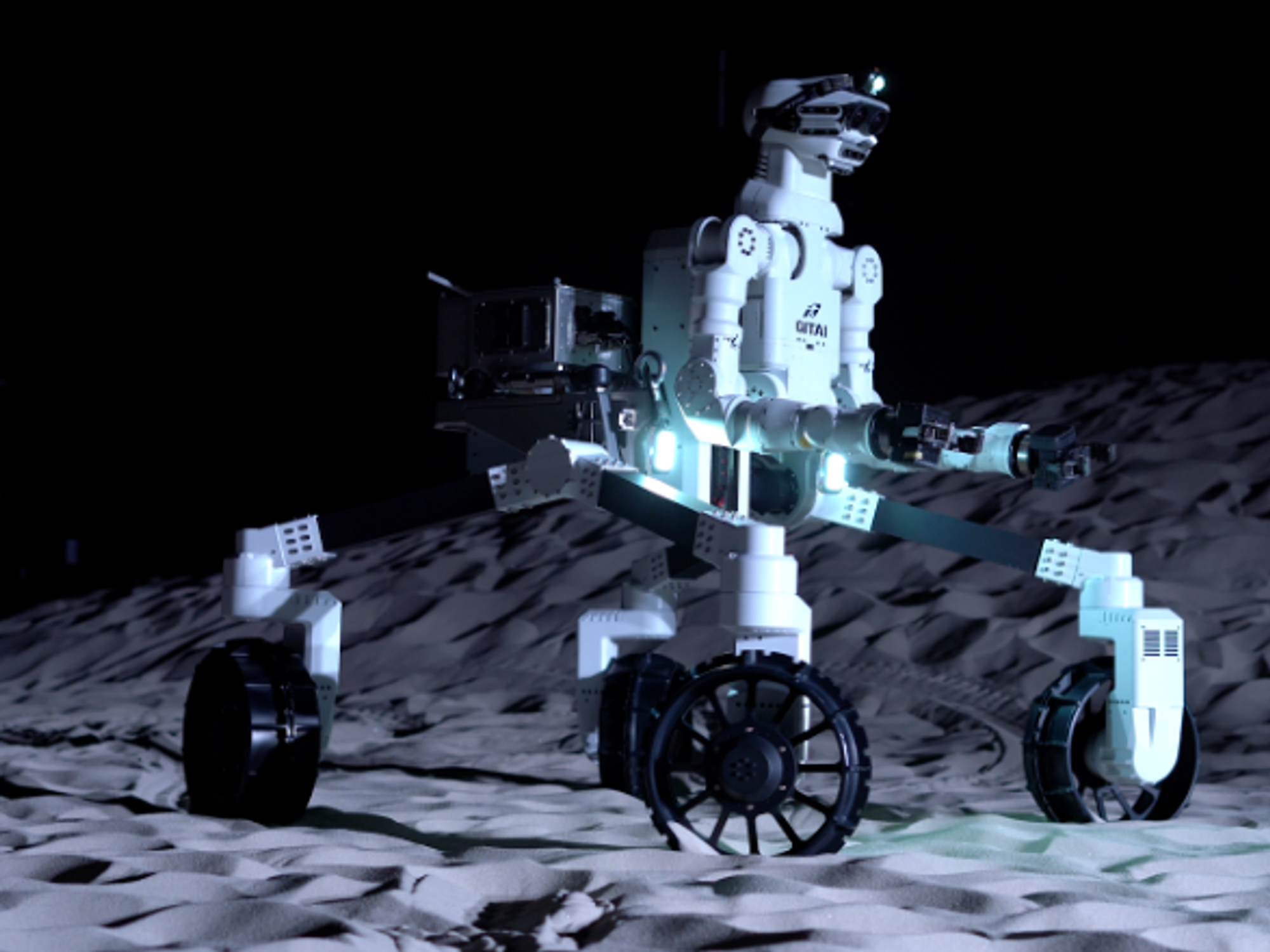Gitai Raises $30 Million to Expand Manufacturing Footprint in Los Angeles
Samson Amore is a reporter for dot.LA. He holds a degree in journalism from Emerson College. Send tips or pitches to samsonamore@dot.la and find him on Twitter @Samsonamore.

Space robotics company Gitai raised a $30 million Series B extension this week, bringing the total value of the round to roughly $47 million.
The funding will be used to further develop Gitai’s suite of space robots as well as build out its manufacturing footprint in Torrance. Previously Gitai announced it raised a $17.1 million Series B in March 2021; this additional raise is still part of that round.
Gitai’s main products include an autonomous robotic arm, which was tested on the International Space Station in October 2021. It also developed a lunar rover called the R1, which it tested on Earth in March.
Funding for this tranche of the Series B came from a handful of existing investors in the company, and many of the backers are based in Japan. This included Mitsubishi’s VC arm, JGC Holdings’ Mirai Innovation Fund, Yamato Holdings’ investment vehicle KURONEKO Innovation Fund, and the KDDI Open Innovation Fund. Other investors including the Dai-ichi Life Insurance Company, Electric Power Development, and Daiwa’s DCI Venture Growth Fund joined the follow-on round.
In a May 25 statement, KDDI’s fund said it expects Gitai’s technology to help “assist in the construction and maintenance of artificial satellites, space stations, lunar bases, and Martian cities.”
This is Gitai’s overarching goal – CEO Sho Nakanose told dot.LA in April that “now is the time to expand our presence, expand our habitat” on other planets because “the conflict between the U.S. and China may escalate because of space resources on the moon.”
Gitai’s plan is to develop and sell robots at scale to reduce the cost of labor for building structures that allow humans to inhabit distant worlds. Nakanose also said that he views in-space habitability as impossible without an infrastructure of robots to build solar panels on faraway planets to produce power for the eventual outposts there.
In a statement Wednesday Nakanose said he was “thrilled to further expand our operations in the U.S.”
Nakanose added, “while SpaceX and BlueOrigin are reducing the cost of transportation to space by 100 times, we at GITAI are taking on the challenge of reducing labor costs by 100 times. We will provide the most labor for the Moon and Mars and build infrastructure such as solar panels, communication antennas, fuel generators, and habitation modules.”
Samson Amore is a reporter for dot.LA. He holds a degree in journalism from Emerson College. Send tips or pitches to samsonamore@dot.la and find him on Twitter @Samsonamore.




 Image Source: Tinder
Image Source: Tinder Image Source: Apple
Image Source: Apple